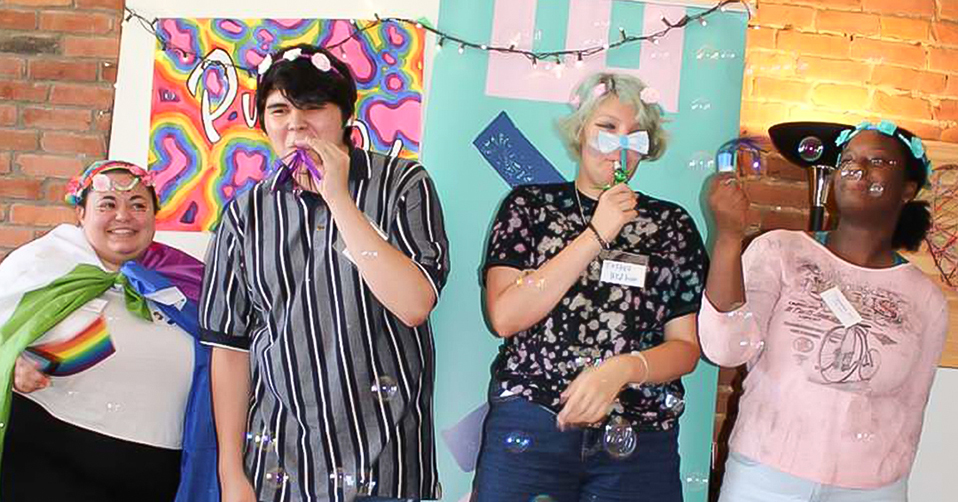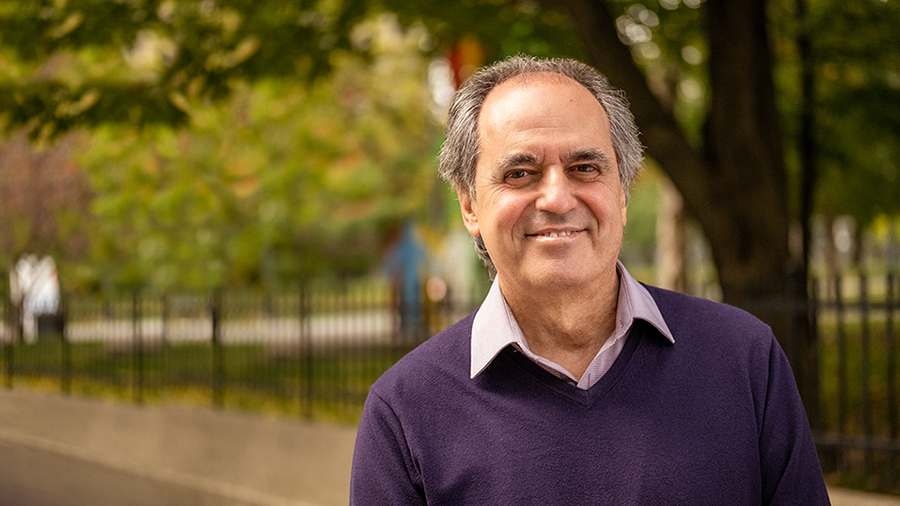
Breadcrumb
- News and Events
- News
- Content
- LOVE is all you need
null LOVE is all you need
Research led by pediatric ethicist Franco Carnevale examines an impactful approach to mental health promotion that helps young people without making them feel like patients
Source: Health E-News, by Ian Popple
JANUARY 11, 2024

A century ago, it was conventional wisdom for children to be “seen and not heard.” Most modern parents cringe at that philosophy, yet children’s voices remain conspicuously absent from what are often regarded as adult conversations. This is particularly the case in health care, where young people are expected to conform to the decisions made by parents and medical staff.
“There’s a perception of immaturity,” explains Franco Carnevale, RN, PhD, a professor at McGill University’s Ingram School of Nursing and investigator at the Research Institute of the McGill University Health Centre (RI-MUHC). “It’s a word I hate to use because it excludes young people from being considered as meaningful participants in the decisions that affect them – this can be traumatic and impact their mental health.” According to Prof. Carnevale, young people have far more interest and capacity to participate in discussions than we give them credit for. “They just need the right environment to open up and disclose what they are thinking and feeling, he says. What a child needs is seldom a good talking to, but rather a good listening to.”

Prof. Carnevale saw this scenario play out countless times during his nearly three decades of work in pediatric intensive care. These experiences inspired him to train as a pediatric clinical ethicist and lead the creation of VOICE (Views On Interdisciplinary Childhood Ethics) – a research program that explores ways of being more attentive to the experiences of young people in order to elicit their voices, whether in health care, school, youth protection or elsewhere.
Eliciting children’s voices is critical when it comes to supporting those most at risk, such as victims of bullying, violence and hate crimes. According to the Government of Canada’s Uniform Crime Reporting Survey, the number of children and youth victims of violent hate crime increased by 174% between 2015 and 2021. Recent events in Israel and Gaza have raised antisemitism and Islamophobia to new levels. Last month, hundreds of high school students in Windsor walked out of class, calling for more action to support students who have been traumatised by the humanitarian crisis.
“Schools have demanding academic responsibilities, so it is difficult for them to also attend to the psychological and emotional needs of students,” notes Prof. Carnevale. “In addition, mental health care can involve interventions than can be uncomfortable for some youth.” Community-based youth development programs can therefore play an important role in supporting youth, preventing violence and promoting positive development. Few programs have had more success in this respect than Montreal-based LOVE (Leave Out Violence) Quebec, which conducts media arts programs focused on young people who have experienced violence – among other challenges – and where participants have a reported 80 percent decrease in violent acts and increased retention in school. Prof. Carnevale and his VOICE team wanted to understand how LOVE has achieved such success.
“Our research demonstrates that LOVE achieves all the known mental health promotion strategies that have been identified through numerous investigations,” he explains. “They do this by creating a social microcosm where participants are encouraged to discuss sensitive topics and express vulnerability without judgement. In essence, they have created an environment where participants feel safe to open up and where they learn from the feedback they receive from peers and LOVE coordinators.”
While the environment is a key to success, so is the ambiance. “There’s an important element of playfulness, which is modelled by LOVE staff,” notes Prof. Carnevale. “The outcome is an extraordinary non-clinical approach to mental health promotion and wellness that helps young people without making them feel like patients.”
Since its conception 30 years ago as a youth photojournalism project in a basement room at Dawson College, LOVE has expanded geographically by opening locations in other provinces. It has also expanded in mandate to encompass those struggling with other exclusion and identity issues.
Prof. Carnevale believes that many more young people could benefit from LOVE in their lives. “I think we should see youth well-being as a public health priority with more active government support and more widescale mobilization,” he says. “We’ve learned a lot from our studies of LOVE about the approaches that engage youth and help them participate actively in addressing their concerns.” LOVE provides a highly impactful model, and it might just be the perfect prescription for some of the mental health challenges faced by youth today.
Further reading
“Time to be free”: Playful agency in LOVE’s in-school programme for at-risk youth, Children and Society https://doi.org/10.1111/chso.12803
Can we play to address violence? Feeling vulnerable while free (at school) with LOVE: blog post to read more about the paper.